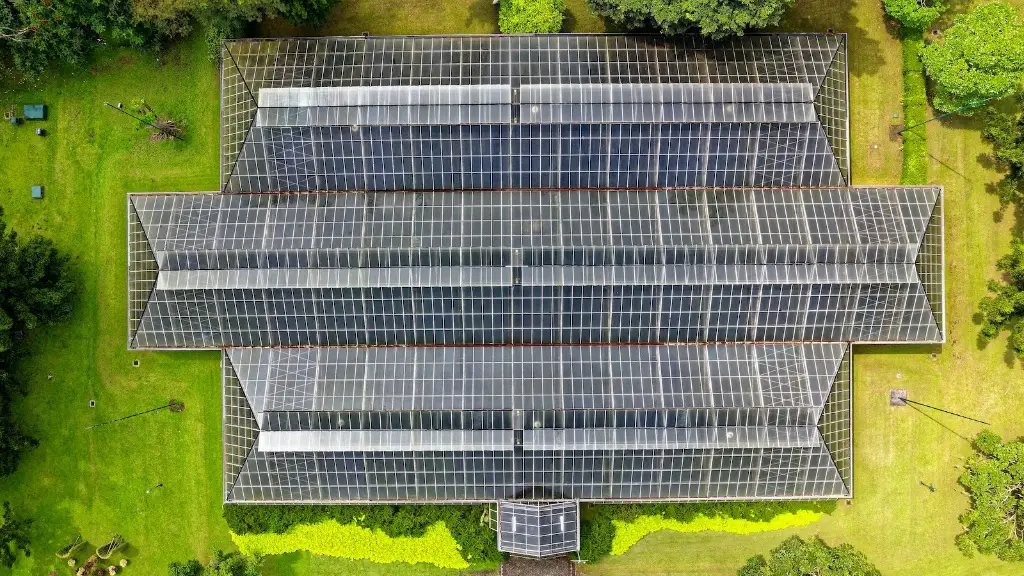Integral ecology is an approach to ecology that takes into account the totality of the human person and the natural world. It is based on the understanding that the health of the environment and the human person are interconnected.
Integral ecology is an approach to ecology that takes into account the spiritual, economic, social, and political dimensions of environmental problems and solutions. It is based on the recognition that human beings are an integral part of the natural world, and that our well-being is inextricably linked to the health of the planet.
What does integral ecology mean?
Integral ecology is a way of looking at the world that takes into account the interconnectedness of all things. It is based on the belief that humans are a part of nature, and not separate from it. This approach can be used to address global problems such as the ecological debt that the Global North owes the Global South. Integral ecology recognizes the interdependence of all people and all things, and seeks to find solutions that are beneficial for all.
Integral ecology is a comprehensive approach to environmentalism that takes into account multiple ecologies, including the environmental, economic, social, cultural, and daily human ecology. It also incorporates Catholic Social Teaching principles of the common good and intergenerational justice. This approach is necessary to address the multiple environmental challenges we face today, and to create a more sustainable and just world for future generations.
How is common good understood in the context of integral ecology
The common good is a central and unifying principle of social ethics that is inseparable from an integral ecology. It is “the sum of those conditions of social life which allow social groups and their individual members relatively thorough and ready access to their own fulfilment”. The common good is essential for the flourishing of individuals and society as a whole. It is a shared responsibility and everyone has a role to play in promoting and protecting it.
Integral ecology is the recognition that the ecological crisis is not just a series of problems to be fixed, but is actually a symptom of a deeper human and spiritual crisis. We have forgotten who we are and where we have come from, and this has led to a disconnection from the natural world. Integral ecology provides a framework for us to reconnect with the Earth and with our own true nature. Through this reconnection, we can begin to heal the ecological crisis, and ourselves.
Who are also an integral part of ecosystem?
Humans are an integral part of ecosystems. Ecosystems provide a variety of benefits to people, including provisioning, regulating, cultural, and supporting services. Provisioning services are the products people obtain from ecosystems, such as food, fuel, fiber, fresh water, and genetic resources.
Sanctuary is an integral part of human nature. It is a place where we can go to feel safe, to be ourselves, and to be with those who understand us. Sanctuary is a place of healing and growth, where we can learn and grow. Sanctuary is a place of love and acceptance, where we can be free to be who we are.
What are the 4 types of ecology?
Molecular ecology is the study of how genes and their products interact with each other and their environment.
Organismal ecology is the study of how organisms interact with their environment.
Population ecology is the study of how populations of organisms interact with their environment.
Community ecology is the study of how communities of organisms interact with their environment.
Global ecology is the study of how the ecology of the Earth as a whole interacts with its environment.
Landscape ecology is the study of how landscapes interact with their environment.
Ecosystem ecology is the study of how ecosystems interact with their environment.
fields of ecology
There are many different fields of ecology, each with a different focus. Examples include aquatic ecology (the study of ecosystems in water bodies), microbial ecology (the study of microorganisms in the environment), terrestrial ecology (the study of land-based ecosystems), taxonomic ecology (the study of the classification and distribution of organisms), and evolutionary ecology (the study of the evolution of ecological systems).
How many main levels of integration are in ecology
Organism: One individual living thing (e.g. a person, a cat, a tree)
Population: All the individuals of the same species in a given area (e.g. the population of humans in London)
Community: All the populations of different species in a given area (e.g. the community of life in a forest)
Ecosystem: All the communities in a given area, plus the physical environment that they live in (e.g. the Amazon rainforest ecosystem)
Biosphere: All the ecosystems on Earth (e.g. the Biosphere includes everything from the bottom of the oceans to the tops of the mountains)
It is clear that Pope Francis sees environmentalism and stewardship of the earth as not only important in and of themselves, but also intrinsically linked to the well-being of humanity. In his view, humans have a duty to care for the earth and its non-human inhabitants not simply because it is in our own self-interest to do so, but because they have value in and of themselves. This is a significant departure from the way many people view the natural world, and underscores the importance of Pope Francis’ message.
What are the three main themes of the Laudato Si?
Pope Francis’ encyclical “Laudato Si'” is a powerful piece of writing that addresses many pressing issues of our time. Here are a few themes that stood out to me and that I believe require our urgent attention:
1) Care for God’s Creation: Pope Francis reminds us that we are stewards of God’s creation and have a responsibility to take care of it. We see the impacts of climate change every day, and it is our moral duty to do what we can to mitigate these effects.
2) We are All Connected: The pope emphasises our interconnectedness with all of creation. He reminds us that what we do to the earth, we do to ourselves. We need to take care of our planet if we want to create a more just and peaceful world.
3) Impact on the Poor: Pope Francis speaks extensively about the disproportionate impact of climate change on the poor and vulnerable. He calls on us to take action to help those who are most affected by environmental degradation.
4) Called to Solidarity: The pope urges us to take up the cause of environmental justice as a global community. We must work together if we are to create a sustainable future for all.
Pope Francis’s encyclical Laudato Si’ talks about the need for a unified approach to climate change and poverty reduction. He makes the case that these two issues should not be pitted against each other, but rather seen as complementary parts of a larger project. The pope argues that any effort to reduce emissions should not come at the expense of the most vulnerable members of society or impose an unreasonable burden on poor countries. Rather, we should work together to find an equitable and sustainable solution that benefits all of humanity.
What are the 7 aims of Laudato Si
The seven goals of Laudato Si are: the Cry of Earth, the Cry of the Poor, Ecological Economics, Simple Lifestyles, Ecological Education, Ecological Spirituality and Community Involvement and Participation. Each goal is important in its own right, but together they provide a comprehensive framework for addressing the many challenges we face as we seek to protect our common home.
The St Francis Pledge is a way for Catholics to show their commitment to taking action against climate change. The pledge is named after St Francis of Assisi, the patron saint of animals and ecology. The pledge urges Catholics to take care of the environment and the poor, and to join the Catholic Climate Covenant.
What is the ecological system integrating all living beings?
The biosphere is the living part of the Earth’s outermost shell. It is the global ecological system integrating all living beings and their relationships. The biosphere is essential for life on Earth. It is the zone of interaction between the lithosphere, the hydrosphere, and the atmosphere. The biosphere is home to all of Earth’s plants, animals, and microorganisms. These organisms interact with each other and with their environment to produce the Earth’s unique ecosystems.
Education is an integral part of life. It helps us gain the knowledge and skills we need to succeed in our careers and in our personal lives. A good education can help us to overcome challenges and achieve our goals.
Final Words
Integral ecology is an eco-theology thataims to address the ecological crisis from a theological perspective. It seeks to situate the ecological crisis within a largerframework of sin and redemption, and to view it as an expression of the brokenness of the human-divine relationship.
Integral ecology is the idea that everything in the universe is interconnected and interdependent. This means that humans, animals, plants, and the environment are all connected and that actions in one area can affect other areas. It is important to consider the ecological impact of our actions and to protect the environment.





